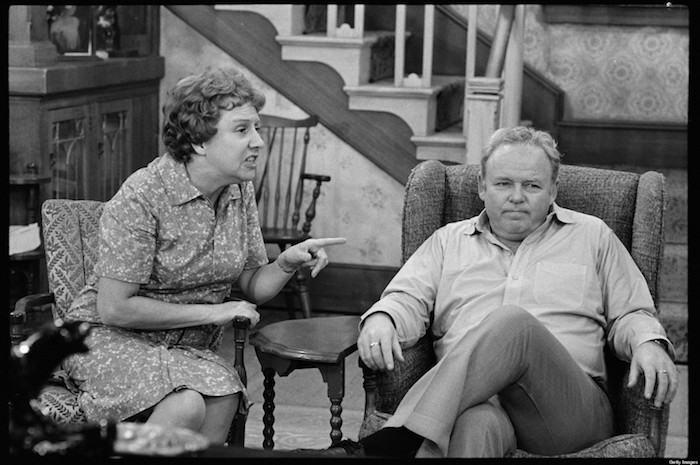*Eleditor’s note: Elephant is a diverse community of nine million readers and hundreds of writers (you canwrite too!). We are reader-created. Many blogs here are experience, opinion, and not fact or The One Right Point of View. We welcome all points of view, especially when offered with more sources and less invective, more frankness and less PR. Dislike this Op-Ed or opinion? Share your own take here.
~
My father’s father was one of the most zealous political activists I’ve ever known.
A victim of Appalachian poverty and a veteran of the second World War, the earliest years of his life had been marked by Herbert Hoover’s inept attempts to alleviate Americans’ suffering during the Great Depression.
No great wonder that he became a Democrat.
What’s more surprising is that he and my grandmother remained Democrats, even as most Southerners fell away from the party that offered a vision of equality for all Americans during the Civil Rights movement.
I happened to be living with my grandparents during Harvey Gantt’s bid for U.S. Senate in the early 1990s, and I recall firsthand my grandfather’s tireless efforts campaigning for Gantt—an African-American—against the unabashedly racist Jesse Helms.
Growing up in a predominantly red state, I knew many other older adults whose visions for the country were not nearly as progressive as my grandparents’. Nevertheless, they were often kind, decent people who genuinely believed that the Republican party sought to uphold high moral values and voted accordingly. When I think of those individuals—most of them dead now—it’s hard for me to reconcile their version of benign conservatism with the vituperative rhetoric of the current Republican party, with its thinly veiled—and often blatant—racism, sexism, homophobia, and Islamaphobia.
Today I live a long way from my parents’ and grandparents’ homes in rural North Carolina, but I do stay in touch with many people from there—relatives, former classmates, friends of the family—and I’ve been shocked by how many of them are supporting Donald Trump in the current presidential race. To put it bluntly, I can’t imagine how any decent person, even a lifelong Republican, could possibly vote for Donald Trump.
And yet they have, in state after state—and will again in November. In Mexico, where I’ve lived for the past six years, Trump’s outrageous comments are so constantly in the news that I have to assume he’s good for ratings here too, notwithstanding (or perhaps due to) the fact that many of those he’s insulted and disparaged are the beloved friends and relatives of viewers.
As an American living abroad, I find all this coverage of a person who so poorly represents the ideals that we stand for as a nation embarrassing. The inevitable questions from people curious about the election and Trump himself make me uncomfortable, and I hasten to assure them that “most Americans aren’t like that.” But as footage of Trump’s rallies surface demonstrating his followers using even more egregious racial slurs and epithets than the candidate himself, it’s getting harder for me to make that case. To some extent, Trump’s political success reflects on all of us.
That’s part of why the whole Trump phenomenon is so perplexing to me. Many of the individuals from my hometown who support him are people I’ve known my entire life. Unlike Trump and some of his followers, they wouldn’t characterize a woman as “a piece of ass,” “a fat pig,” or “a dog,” any more than they’d comment on the size of their own anatomy or joke about dating their daughters. They don’t mock disabled people or call breastfeeding mothers “disgusting.” They’re Christians who recognize that “you can never be too greedy” and “the beauty of me is that I’m very rich” are antithetical sentiments to the message of the Gospels…and yet, for some reason, they’re willing to cast their votes for Donald Trump.
Is it racism?
Do they genuinely believe that most Mexicans are rapists and drug-dealers?
Whether they do or not, it’s hard for me not to take personally that they support a candidate who does; after all, my husband is from Mexico, and my children are half-Mexican. Is it fear that drives them to believe that all Muslims should be banned from entering the United States, even though statistics make it clear that their own white, gun-loving neighbors present a considerably greater threat to their safety than terrorists? Why are they, committed Christians, willing to overlook the fact that Trump—from his philandering to his cupidity, to his inability even to cite scripture correctly (“Two Corinthians“)—is the furthest thing from a Christian? Have they just subscribed to such an extreme caricature of Hillary Clinton that any alternative is preferable?
I don’t have answers to these questions. The only theory I have to offer goes back to my last semester in high school, when I took a sociology class with a popular teacher who later became the school principal. He told us the fascinating story of a television character whose name only vaguely registered with me; the program he described had already been off the air for more than a dozen years by the time I took the class, and it wasn’t until much later that I watched it for myself.
In 1971, CBS launched a new program with no advance publicity, so nervous were the network executives about how it would be received by the public. The evening the first episode aired, extra operators were hired to handle the expected protests and complaints about the protagonist, a misanthropic bigot. In fact, there was an avalanche of calls, but viewers were not protesting the program: they were cheering it. According to producer Norman Lear, 99 percent of callers liked the show, something that had never happened before. The influence of the program—and the character—on society was such that by the following year, the white, male, blue-collar voting bloc was referred to as the “Archie Bunker vote.”
It didn’t matter to viewers that Bunker himself was defined by his bigotry and offensive language toward African-Americans, gays, feminists, hispanics, Jews, Catholics, and Poles. It didn’t matter that he was bad-tempered and condescending to his wife or that he stood in stark contrast to the man whom the audience ought to have identified with—his reasonable, humane son-in-law, Mike. Archie Bunker became what Lear later called “a lovable bigot,” and as the show progressed he redeemed himself in several episodes in various ways, giving a touching eulogy for a Jewish friend and denouncing a racist organization he’d inadvertently joined. It was as if the public’s faith in him shaped the character into a person who, in the end, managed to do the right thing after all.
I think that something similar has happened this election cycle; the number of Americans who identify with Donald Trump’s racist and offensive views and put their faith in him as the potential leader of the free world has surprised everyone, even Trump himself. We seem to have confused television—and that’s Trump’s business, after all—with real life. It doesn’t help that he’s been given substantially more airtime on every major network than any other candidate in the race (according to the New York Times, two billion dollars’ worth of free publicity). But this isn’t a TV program with a character who can be redeemed in the course of a half-hour episode, and Trump isn’t the endearing fool lashing out at a changing world that Norman Lear fondly described. This is real life, and there’s a lot at stake in this election.
All of which brings me back to my grandparents. When I see footage of my fellow North Carolinians—in Charlotte, a city I lived in for nearly a decade and would have considered one of the more progressive cities in the Southeast—chanting, “Build the wall!” or when I read, as I did earlier today, that the two remaining candidates are in a dead heat in my home state, or when I see Trump propaganda on Facebook from someone I wouldn’t have expected to support him, I wonder what my grandmother and grandfather would have thought about the situation. They were two of the hardest-working, most sober, and least improvident people I’ve ever known; they weren’t coarse in their language or judgmental of others. I think Donald Trump would have embarrassed them, as he does me.
The tone my grandparents set for our family probably helps to explain how it is that two of my cousins, a brother and sister, are married to a Jew and a Muslim, respectively, and they’re all very dear friends. Or why so many of us have chosen to go into fields like education and healthcare. We learned from them what tolerance, compassion, and service look like, and those were lessons we took to heart. My grandparents didn’t live to see this election, but I know that if my grandfather were alive today, he’d be doing everything in his power to keep Donald Trump out of the White House.
And that thought makes me proud.
~
Author: April Vázquez
Picture: TV Still
Editor: Travis May









Read 0 comments and reply